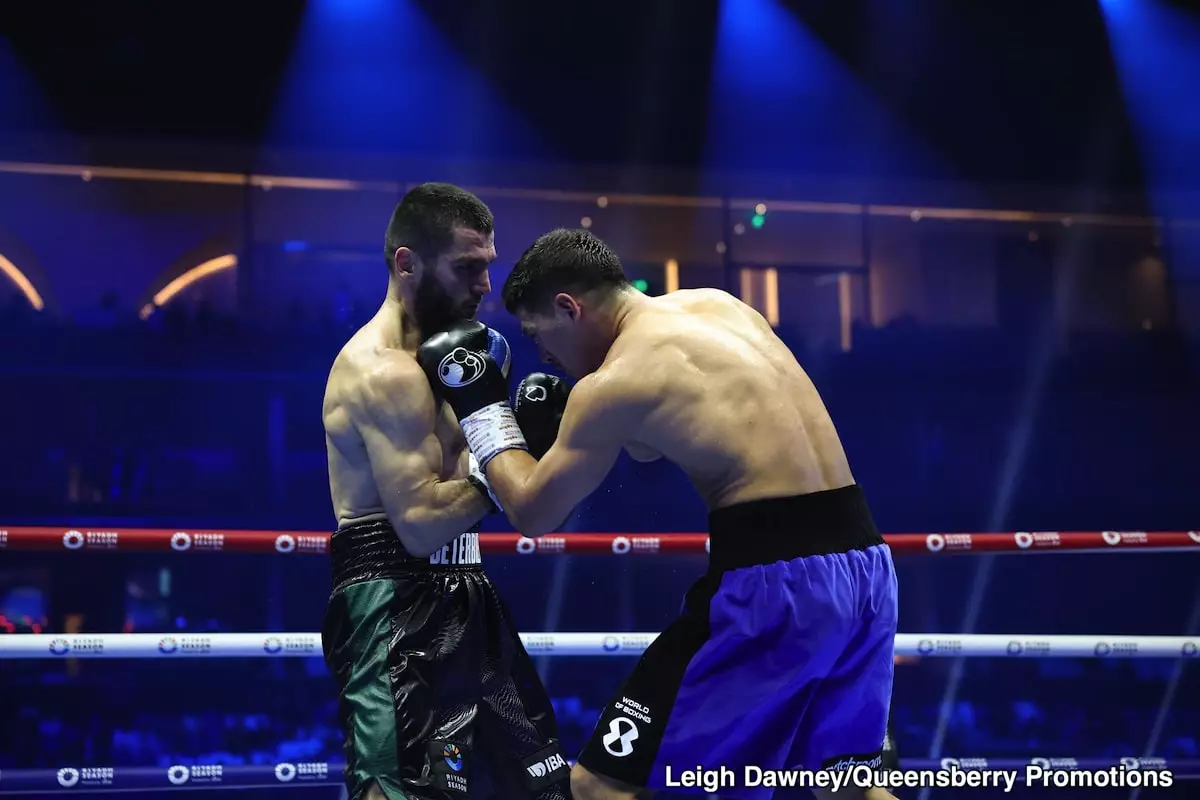In the wake of last Saturday’s high-stakes showdown between Artur Beterbiev and Dmitry Bivol, the boxing community has erupted in debate over the legitimacy of the judges’ decision that awarded Beterbiev a majority decision victory. Tim Bradley, a well-respected commentator and former world champion, has taken a bold stance on the matter by defending the judges and asserting that the outcome was indeed fair. This has incited a flurry of responses from fans and pundits who see the result as a stark failure of the boxing judging system, labeling it a robbery. However, a closer examination of the bout reveals a more nuanced situation that may not fit neatly into the binary of winner and loser.
One of the most contentious points regarding the fight was the differing philosophies each fighter employed in their game plan. Bivol entered the ring with a defensive strategy centered on evasion. While his ability to move and avoid significant damage was commendable, this tactic, as Bradley notes, came at a cost. Bivol seemed overly preoccupied with not getting hit, often neglecting to press the action and capitalize on scoring opportunities. Effective boxing is not merely about avoiding strikes; it is also about landing punches and demonstrating offensive prowess. Throughout the latter stages of the fight, Bivol’s reluctance to engage allowed Beterbiev, who maintained a more aggressive approach and landed harder punches, to gain an edge that ultimately swayed the judges.
The scrutiny surrounding the judges’ scorecards often hinges on two main criteria: the volume of punches landed and the impact of those punches. According to the data from the fight, the quantity of punches thrown by Bivol was not vastly superior to Beterbiev’s; however, the latter’s shots bore more significance in terms of damage. Bradley highlights the visuals of Bivol’s face—marked and bruised—suggesting that the judges are keenly aware of how visibly affected a fighter appears during the bout. Boxing judges are trained to evaluate not just the numerical tally of punches but how those punches affect the fighters. This is key in understanding why Beterbiev was awarded the fight.
In the aftermath of the bout, reactions from the boxing community varied dramatically. Some promoters expressed vehement discontent with the judges’ scores, going so far as to demand the removal of one judge from future assignments due to the controversial scoring of 116-112. Such reactions often stem from emotional responses to defeat; when significant financial stakes and reputations are on the line, many find it hard to accept unfavorable outcomes. However, these outcries often overlook the complexity of judging—how subjective it can be, and how different perspectives shape the understanding of a close fight.
Chris Algieri, another commentator who sat ringside, echoed Bradley’s worries, pointing out critical moments in which Bivol appeared to relinquish control of the fight, particularly in the late rounds. His comments about Bivol’s performance serve as a reminder that boxing is as much about maintaining composure as it is about skill. When fighters let their guard down, even momentarily, they can hand control back to their opponent.
In light of the discussion surrounding the Beterbiev vs. Bivol match, it is crucial for the boxing community—fans, commentators, and promoters alike—to strive for a more sophisticated understanding of what constitutes effective scoring in boxing. The race to label a decision as a “robbery” often oversimplifies the realities of a close contest and can detract from a thoughtful analysis of the athletes’ performances. As Bradley and Algieri both suggest, this was not simply a matter of clear-cut dominance but rather a complex interplay of strategy and execution.
While the result may have upset many who rooted for Bivol’s defensive style, the judges ultimately evaluated the fight based on well-established criteria of damage and aggression. It is vital for all participants in boxing to temper their reactions with an understanding that victories, especially in close contests, may not always align with public sentiment. The nuances of boxing judging require recognition and respect to genuinely appreciated the sport’s rich complexity.

